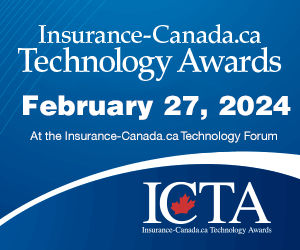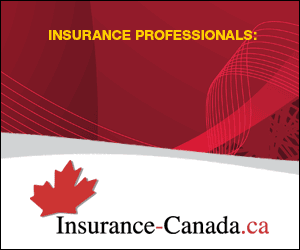RSA Canada’s TruceTO survey reveals GTA residents feel increasingly unsafe on Toronto’s streets
- 85 per cent of everyone who walks, cycles or drives agree that road rage continues to be a serious problem (up two per cent from 2018)
- 51 per cent of cyclists (up three per cent from 2018), 20 per cent of drivers and 19 per cent of pedestrians feel unsafe on the streets of the GTA
- 36 per cent of drivers, cyclists and pedestrians believe that the city needs to invest more in driver, pedestrian and cyclist education to make our streets safer
- 56 per cent of GTA residents admit that they are simply not familiar enough with what the city is doing to prioritize road safety
Toronto, ON (June 5, 2019) – In the city of Toronto, road rage continues to worsen at an unprecedented rate. According to a recent TruceTO survey commissioned by RSA Canada, over 85 per cent of GTA road users who walk, drive or cycle all agree that it’s a serious problem – that’s only getting worse – which is causing a great deal of stress among citizens.
More than 73 per cent of all working adults aged 20 to 64 admit to experiencing stress, and a key source of that stress is commuting. With long commutes come traffic, higher levels of anxiety and less time for other activities. Stress and bad road behaviour are forming a vicious cycle, perpetuating less and less civility on our streets. Road safety is now larger than just a city or infrastructure problem: it’s also a public health issue.
In 2018, the city of Toronto experienced its worst year in terms of the number of injuries and fatalities on the streets: 42 pedestrians and 5 cyclists were killed or seriously injured in a collision with a motor vehicle and 13 drivers were killed or seriously injured due to aggressive or distracted driving.
While there is important work underway at the municipal level with Vision Zero 2.0, a majority of GTA residents admit they are simply not familiar enough with what the city is doing to prioritize road safety. In fact, 51 per cent of cyclists (up three per cent from 2018), 20 per cent of drivers and 19 per cent of pedestrians still feel unsafe on the streets of the GTA. Even more telling among cyclists age 18 and older, 57 percent feel unsafe (up 9 per cent from 2018).
“The street safety issue in our city is not getting any better – it has gotten much worse. The grim numbers in 2019 to-date have proved that,” says Donna Ince, Senior Vice President for Personal Insurance at RSA Canada. “We must all take accountability for the role we’ve played in the deteriorating climate of our streets – and our communities. It’s on all of us to commit to reducing the rage on the streets and put an end to this crisis once and for all.”
Less anxiety and stress on the road helps to support ongoing efforts to make Toronto’s streets safer and enables road users to react in a timely, informed and calm manner. Improvements in road safety overall constitute an important aspect of making our cities healthier.
TruceTO’s goal is to amplify understanding of the important work being carried out by the city, by independent organizations, and at the federal level, and encourage GTA residents to make a personal commitment to change, to play their part in making our streets safer and more civil for all.
Overall, year over year it’s clear – the increasing rate of road rage, lack of education and empathy, and low awareness on the roads remains at the core of the issue.
Additional findings from the TruceTO survey include:
- Breaking the rules:
- Drivers (75 per cent), pedestrians (67 per cent) and cyclists (72 per cent) in the GTA all agree that drivers not following the rules constitute one of the greatest causes of distress on the road.
- Whose right of way is it?
- 53 per cent (up three per cent from 2018) of pedestrians, 49 per cent of drivers, and 40 per cent of cyclists don’t always know when cyclists have the right of way;
- Only 60 per cent of cyclists use hand signals consistently.
- Too close for comfort:
- 45 per cent of drivers, 44 per cent of pedestrians and 63 per cent of cyclists have been in a collision or know someone who has.
The survey also revealed that 84 per cent of respondents claim to have made a major behavioural change in the past few years such as drinking more water (30 per cent) or changing their sleep patterns (25 per cent), but only four per cent indicated a desire to change their road behaviour, even though the latter is a clearly identified source of stress.
“People are willing to change for better physical health but are less likely to feel motivated to change when it comes to improving safety in their community,” adds Ince. “We need to change this mindset, because road safety is closely linked to improvements in overall physical and mental health. As providers of auto insurance, we have a vested interest in the wellbeing of our customers on and off the road.”
Here are a few solutions to help make our streets safer for all:
-
- Education
- Refresh your knowledge of the rules of the road: you can start with this video quiz (below) or the StreetPeace podcast
- Learn about the City of Toronto’s Vision Zero plan to improve road safety
- Empathy
- Human error is inevitable, but responding with empathy can prevent unnecessary escalation and perpetuation of bad road behaviour
- Slowing down, staying focused and keeping emotions in check can all help reduce the number of deaths and serious injuries on GTA’s streets
- Education
- Embracing change
- Ultimately, there is no doubt that our streets need to be redesigned to properly accommodate drivers, cyclists and pedestrians equally
- Some of this work is underway, with reduced speed limits, crosswalks and red lights
- Ease your stress
- High stress only makes us slower to respond: each of us needs to take action to help improve our overall physical and mental health
- Just as we hydrate and strive for more sleep, we need to improve our overall health by addressing the stress we feel when commuting – through education and empathy
To learn more about TruceTO, test your road safety knowledge and take the pledge to be a better road user, visit www.truceto.com. TruceTO aligns with RSA’s ambition of Making Life Better Together and supports its Corporate Responsibility Safe, Secure World pillar, which focuses on safeguarding their customers from everyday risks. Learn more about RSA Canada’s corporate social responsibility journey.
TruceTO Quiz: Test Your Knowledge
About the 2019 TruceTO survey
TripleScoop Premium Market Research is an independent full-service research agency with deep roots in the pioneering development of online research methods. An online survey of 1,305 Canadians who are 16 years or older, live and/or work in the Greater Toronto Area and regularly use the city streets as pedestrians, cyclists and/or drivers, was completed between May 3-15, 2019, using AskingCanadians’ online panel. AskingCanadians’ online panel has more than one million members nationally, the leading online data collection firm in Canada, and the first one to implement TrueSample for powerful identity validation, de-duplication and engagement modeling that ensures survey respondents are real, unique and engaged. A probability sample of the same size would yield a margin of error of +/- 2.7%, 19 times out of 20.
About RSA
With a 300-year heritage, RSA is a multinational quoted insurance group. Focusing on general insurance, RSA’s core markets are the UK & Ireland, Scandinavia and Canada, with the capability to write insurance business across the globe. RSA’s core businesses have approximately 13,500 employees with net written premiums of £6.3bn in 2016. For more information, visit www.rsagroup.ca.
About RSA Canada
The RSA Canada group of companies includes Roins Financial Services Limited, Royal & Sun Alliance Insurance Company of Canada, Quebec Assurance Company, Johnson Inc., Unifund Assurance Company, Western Assurance Company, Ascentus Insurance Ltd., Canadian Northern Shield Insurance Company and RSA Travel Insurance Inc. (collectively, “RSA Canada”) and is part of a group of companies headed by RSA Insurance Group Plc. RSA Canada employs more than 3,000 people across Canada and is one of the oldest insurance companies in the country with roots dating back to 1833.
© 2016 Royal & Sun Alliance Insurance Company of Canada. All rights reserved. RSA, RSA & Design and related words and logos are trademarks and the property of RSA Insurance Group plc, licensed for use by Royal & Sun Alliance Insurance Company of Canada. RSA is a trade name of Royal & Sun Alliance Insurance Company of Canada.
Source: RSA Canada
Tags: driving safety, RSA, Toronto, TruceTO


